
The Importance of Conservancies and Booking Directly
An informative post re the importance of conservancies and why booking locally is the way forward as opposed to supporting online booking agents like BookingCom.

13 February 2023
The afternoon heat still lingers as you walk into the Himba kraal. The smell of ground, goat and Himba enthrals your senses. Only a few women are around, prepping for the night ahead. Reminiscent of the dinner and bath time routines back home. Slowly exploring the kraal, you notice movement on the outside. The first animals are returning from the mountains with their herders and dogs. Soon the whole kraal is bustling with life. Goats need to be milked, fires are made, children need to be fed, everything and all at the same time. This a true Himba Culture Experience.
It could be you, right here, experiencing Himba life as it is. You can even choose, for the first time ever, whether you would like to only visit for a few hours or whether you would like to overnight at the Himba kraal to not only see the Himba as a visitor but experience life as they do. Imagine waking up under a sky littered with stars or hearing a Himba woman soothing her little one in the depths of the night.
[Morning Tours are also available and depart after breakfast. We also have other activities at Epupa Falls]
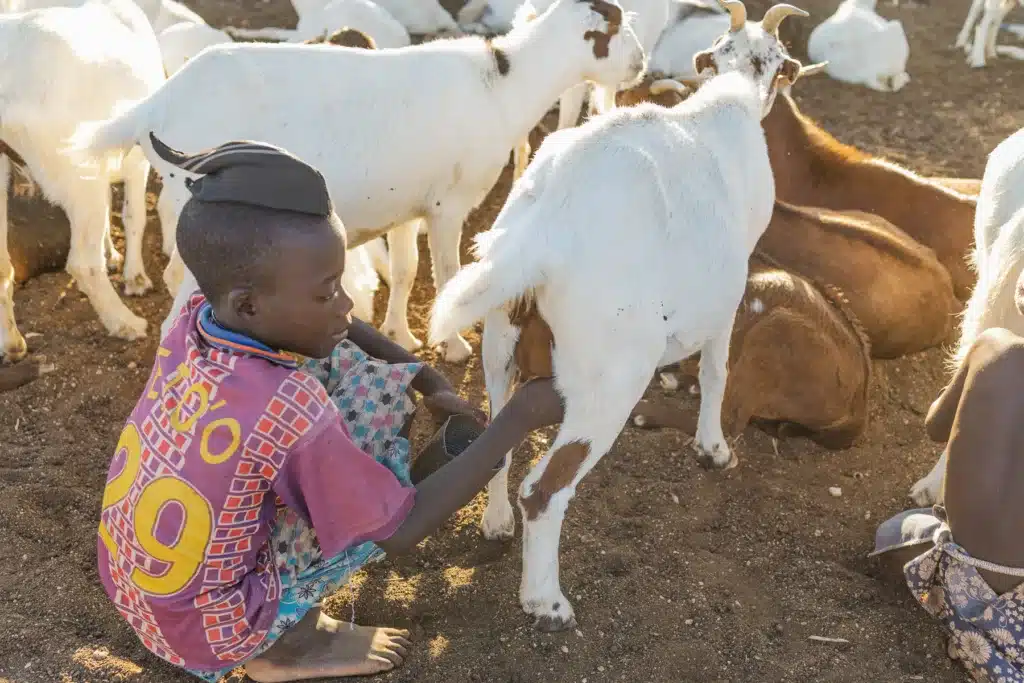
Options to choose from:
Price on Request for the overnight visits at the Kraal.
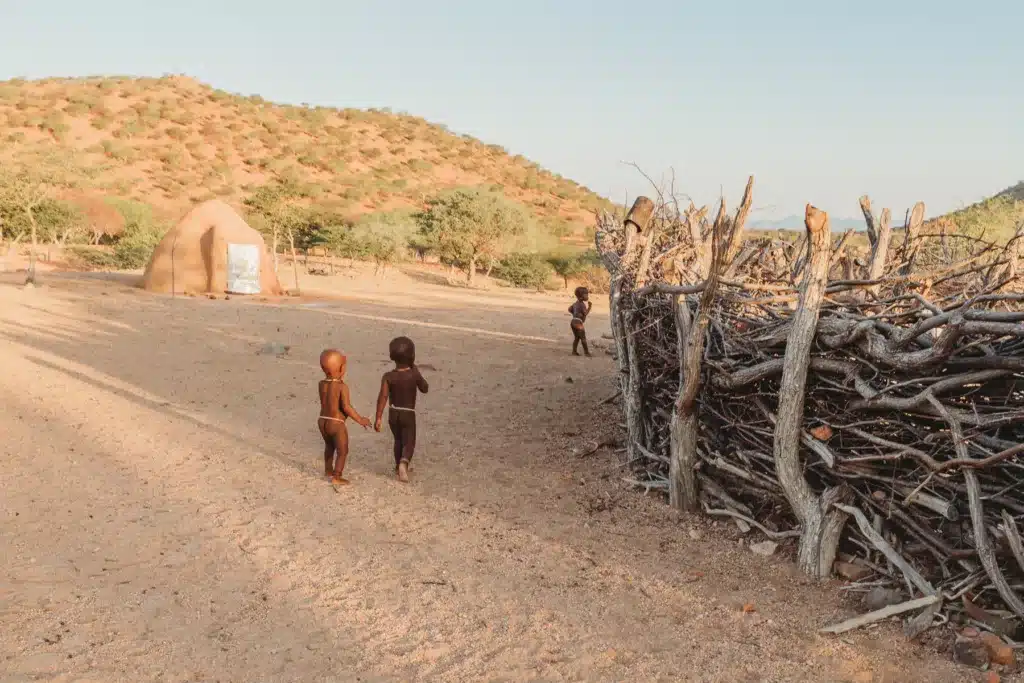
The ideal itinerary for an overnight stay at a Himba kraal would look something like the following.
Arrival at Lodge / Campsite during the late afternoon. Take a hike up to the viewpoint with a guide and dig deep into the history and culture of the area while sipping on the icy drink you have been longing for all day.
Day 1: Enjoy breakfast at the lodge before heading into the mountains for a full-day Himba Culture Experience. You will be visiting semi-permanent villages as well as a temporary structure during the day learning and experiencing the incredible life that the Himba are leading in the 21st Century and the struggles they face.
Have lunch in an unknown location, not even Google can find and slowly make your way back to the lodge. Take a swim, enjoy a massage – relax, before heading out to the Himba kraal you will be visiting this afternoon. Overnight at the kraal.
Day 2: Enjoy Breakfast at the kraal before heading back to the lodge/campsite to soak in more of the Epupa Valley Meditation or head straight out for your next location.
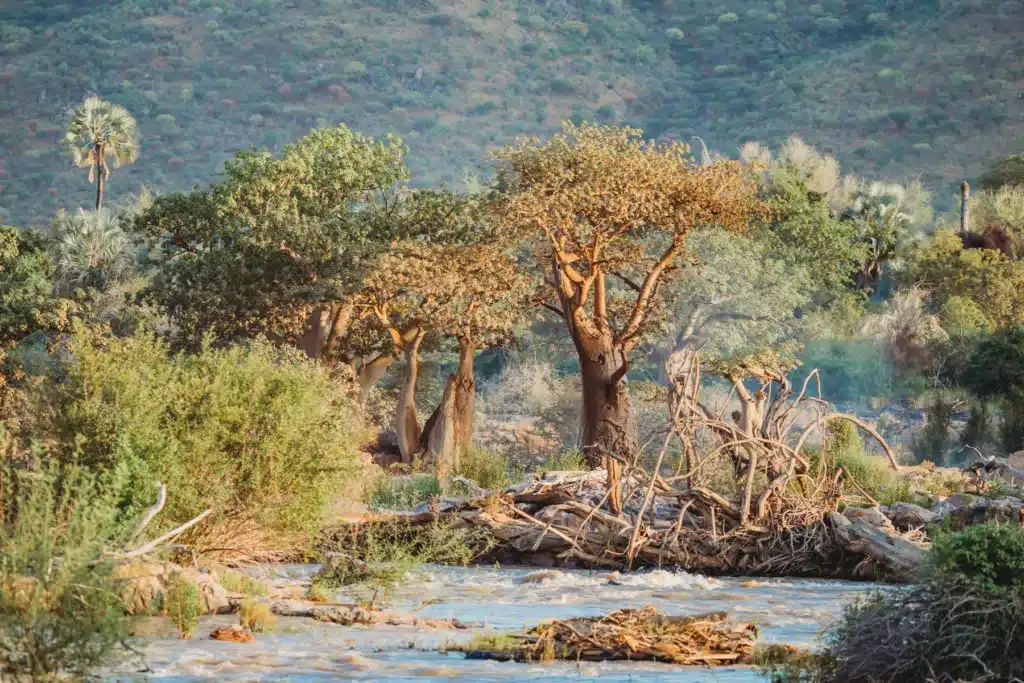
April usually marks the end of the rainy season which also means less mud on the way to Epupa. If it was a good rainy season, the waters from Angola will also start to reach Epupa by the middle of April which means the falls will be jaw-droppingly beautiful. Temperatures are starting to reach bearable perimeters. Until the middle of July, the temperatures keep falling, but never to freezing point, making the Namibian winters the ideal time to visit Epupa Falls Lodge & Campsite.
From mid-July, the area starts to explode with life as our European visitors arrive for their school holiday breaks. So if you plan on travelling then – expect it to be busy and come prepared – make that booking well in advance!
As a side note – Easter Weekend and the May School Holidays also tend to be busier than usual. Make sure you pre-book your spot well in time if you plan on visiting then.
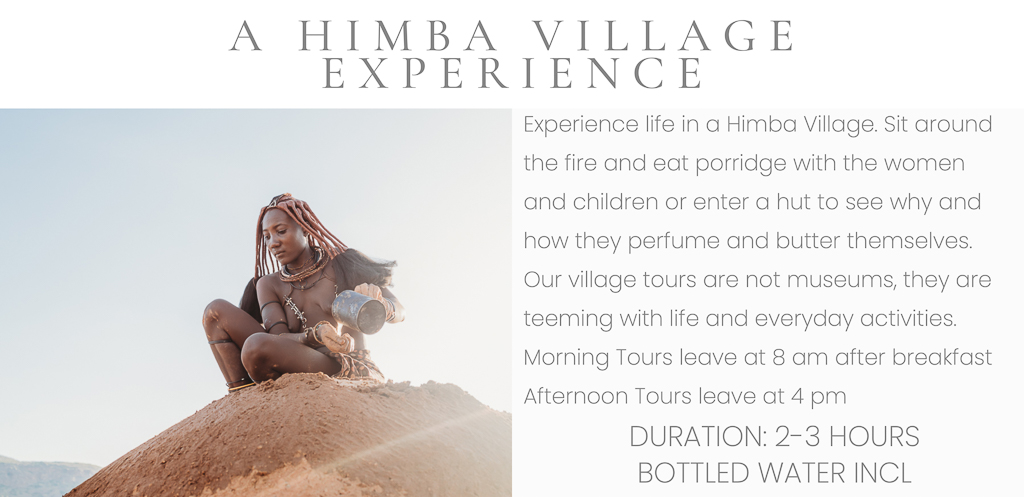

An informative post re the importance of conservancies and why booking locally is the way forward as opposed to supporting online booking agents like BookingCom.

Travelling to Epupa with Children can be a rewarding and memorable experience for the whole family. Here are some tips and advice by Epupa Falls Lodge.
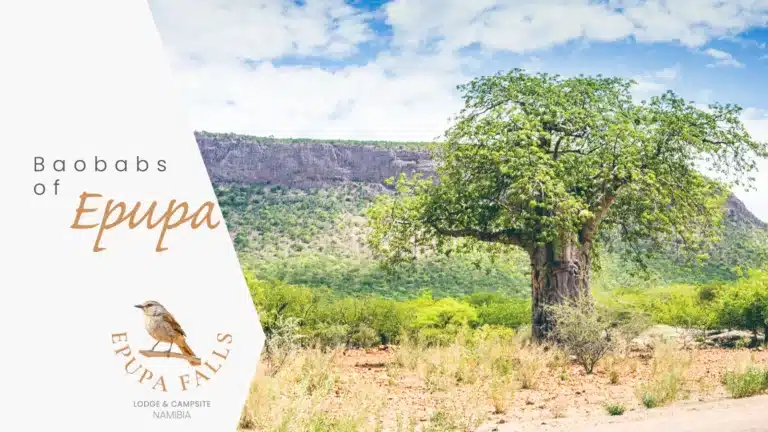
One of the many reasons to visit Epupa is the incredible variety of trees and plants. Today, we’ll only look at one – the majestic baobabs of Epupa.